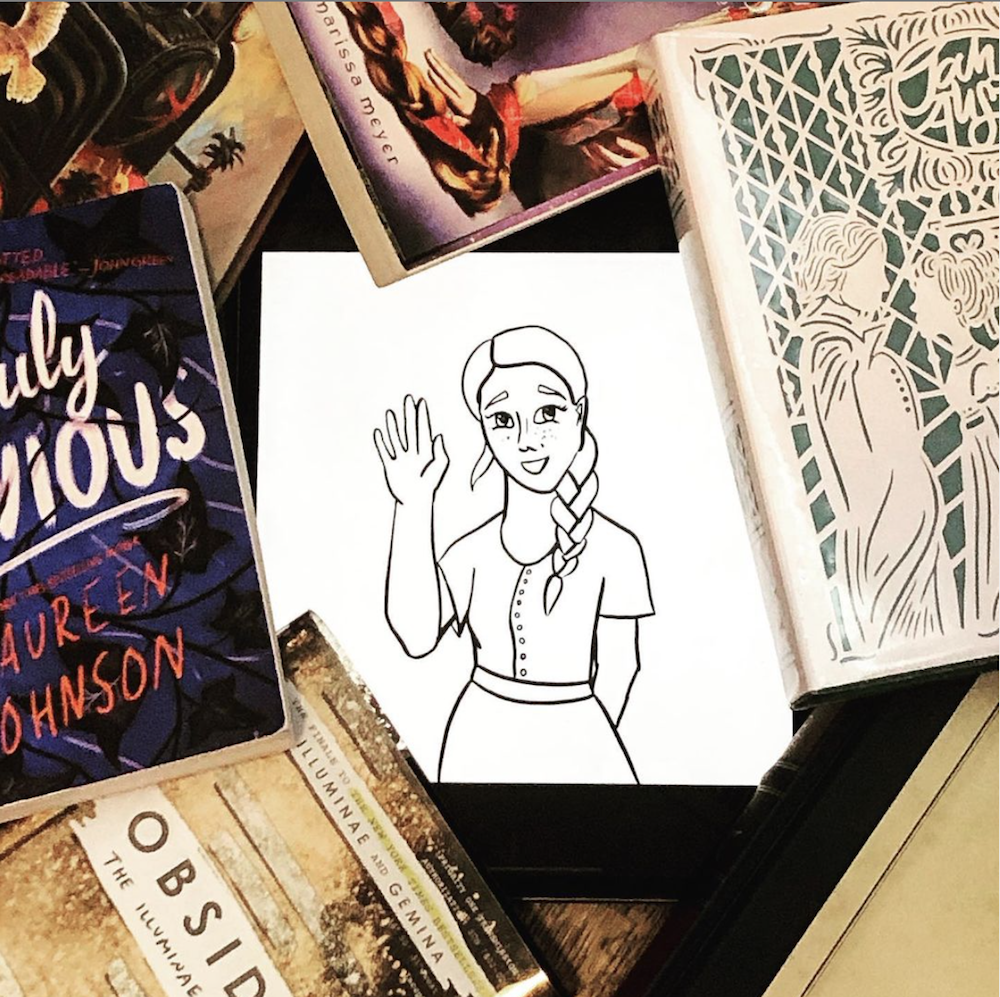Long Story Short, by Serena Kaylor, follows Beatrice Quinn, an extremely smart 16-year-old who grew up being homeschooled. When she is accepted to Oxford after applying without her parent’s permission, they agree to let her go only if she can prove to them that she is capable of making friends and getting a “normal teenage experience.” To do so, they send her to a Shakespearean theater camp with a list of tasks that she must accomplish, ranging from “accept an invitation you don’t want to” to “pull a prank.” As she does these, she finds herself making friends for the first time and clashing with Nik, the irritatingly confident and talented son of the camp’s founders.
I’m torn about this book; as a lover of Shakespeare, camp stories, and young adult romance, I absolutely adored it, but, as an autistic woman, I can’t tell how I feel about it.
Beatrice is blatantly autistic. I cannot be completely sure that the author intended to write her that way, but that is absolutely how she came out. She has a specific meal for each day of the week that she has always eaten for dinner, she always wears an outfit consisting of khakis and a polo shirt that her mother calls a “uniform,” she gets panicky when she’s in unfamiliar social situations and recites the noble gases to calm herself, she doesn’t know how to interact with other people and prepares scripts and specific structures to use for conversations, she shows sensory sensitivities to food– I could go on and on. That in itself is the opposite of a problem; I loved her and related to her and would happily read several more books about her.
My main issue with the book comes with other characters’ attitudes, particularly those of her parents, towards Beatrice’s autistic traits. Her mother at one point tells her that Beatrice had always been different, but that she never got her diagnosed with anything because she didn’t want her to be judged and put in a box. This is an issue for a lot of reasons. I have to imagine that her mother is referring to autism in that statement, which only stigmatizes the disorder. Getting an autism diagnosis is rarely limiting for autistic people; rather, it is freeing in that it allows us to understand ourselves better and learn that there is nothing wrong with the way that we are. To intentionally not get your daughter diagnosed with anything to avoid her facing judgement is to stigmatize autism and take that opportunity to understand herself away from her.
I don’t necessarily have a problem with the overall nature of the list or forcing Beatrice to get a little outside of her comfort zone, since it only makes sense if they’re going to allow their minor daughter to move to a different country, but I do have a problem with Beatrice’s parents’ overall problem with the way that she exists. Fortunately, once she goes to camp, they cease to be important characters in the book.
Beatrice’s friends are much more accepting of her. While they do encourage her to try new things and complete the list, they never force her to do anything. Beatrice’s best friend at camp, Mia, urges her to try new clothes and go to various camp social functions, but always makes it clear that Beatrice shouldn’t do anything that she is uncomfortable with. Beatrice’s various friends at camp appreciate her, awkwardness and all; they still hold her accountable when she makes mistakes, but it is overall a supportive environment. Because of that aspect of the book, I do feel like I can mostly excuse the book for the treatment of Beatrice by her parents.
I truly did love everything else about Long Story Short. I’m a theater kid, so I will happily read anything else about theater kids, and I absolutely adore Shakespeare. The other campers are all multidimensional and interesting, and I loved the casual queer rep with Beatrice’s two friends, Mia and Nolan (one a queer girl and one a gay boy). The camp setting is so fun, and I enjoyed reading about all of their traditions and everybody’s genuine love for the program. Nik, the love interest, is wonderful and attractive and it’s a perfectly-done dislike/annoyance-to-lovers plotline.
Overall, I’m giving Long Story Short 4/5 stars. While it’s otherwise a 5 star read, I cannot in good conscience give a book that shows parents acting this way towards their autism-coded child that rating, so I’m knocking off a star. I did still love it and enjoy it and recommend it; I just hope that people will take Beatrice’s parents attitudes with a grain of salt. I do also wish that Beatrice had just been given an autism diagnosis, since there’s so little rep for autism and I have very little doubt in my mind that she was intentionally written that way. Overall, I do recommend this book whole-heartedly to anybody looking for books centered around camp, theater, dislike-to-lovers, or very-heavily-autism coded protagonists.
Long Story Short releases on July 26, 2022, so be sure to pick up a copy if you’re interested!
Thanks to NetGalley and the publisher for providing me with a free eARC in exchange for a fair and honest review.






Recent Comments